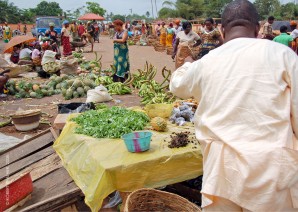
The stakes are high in Nigeria as the day of the elections, already postponed by a month, steadily draws nearer. Security has been a dominant issue, with the recent cancellation of a football match with Bolivia’s national team being only the latest event to draw attention to concerns surrounding Nigeria.
These concerns, currently, lay primarily with the administration of President Goodluck Jonathan and his ongoing campaign to beat back the terrorist forces of Boko Haram in the North.
This jihadist group, which has recently forged formal ties with ISIS, began accruing territory in the northern regions of Nigeria in 2009, attempting to establish their own Islamic caliphate. The death count attributed to Boko Haram exceeds 15,500 murdered, though the group has also been responsible for numerous kidnappings including the highly reported abduction of 300 schoolgirls in April of 2014.
President Jonathan has come under fire politically for his government’s inability to end Boko Haram’s six year insurgency. And even as the Nigerian military begins to liberate towns in the North, the situation is far from victorious. Many of the recaptured villages have been strewn with dead civilians, with the latest report identifying 70 mummified bodies in the recently liberated town of Damasak.
The political importance of this liberation campaign is evident so close to election day. President Jonathan specifically delayed the election in order to prioritize the military’s push against Boko Haram, a move viewed with suspicion by many. Another salient issue has been the slow implementation of a new voting system, which requires all voters to register and pick up their personal voting card (PVC). The system is a direct response to the numerous allegations of voter fraud, registered in previous elections.
Jonathan’s opponent, General Muhammadu Buhari, has also used the issue of Boko Haram to political advantage, hoping to cash in on his reputation as a strong leader. General Buhari has been strongly outspoken concerning the incumbent candidate’s “lack of leadership” in dealing with Boko Haram and issues of internal corruption.
Buhari himself is no stranger to allegations such as these as his political past is mired in controversy. The General was head of state for a time after he mounted a military coup that put him in power. His stay in government is famous for the brutal crackdown on human rights, extrajudicial killings of opponents and for the pursuit of disastrous economic policies.
But the election between these two men marks a key moment in Nigerian history outside of concerns of national security. Whichever candidate claims victory will be taking the reigns of what is currently the largest economy in Africa, calling up questions of economic security as well.
Nigerian gross domestic product (GDP) was last estimated at $594.257bn, surpassing long-standing frontrunner South Africa, whose GDP came out to $341.216bn. According to some analysts, Nigeria potentially stands to become one of the top 10 economies by 2050, provided the nation is well tended to of course.
Jonathan’s People’s Democratic Party (PDP) has claimed that economic security can only be guaranteed under the leadership of the incumbent Jonathan. The President is known for his public economic policies such as the Transformation Agenda, while Buhari’s plans for economic growth have remained fairly vague, with the former General preferring instead to re-emphasize his commitment to stop Boko Haram and root out corruption.
The upcoming election will have great consequences on the national and economic security of Nigeria. Nigeria is a nation on the rise, and as voters prepare to head to the polls at the end of this month, one can only hope that the results will not endanger anything more important than a football match.

